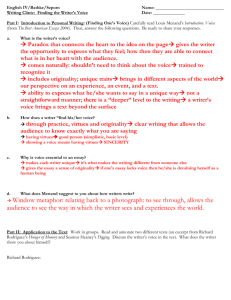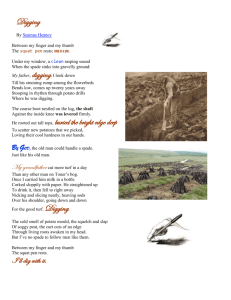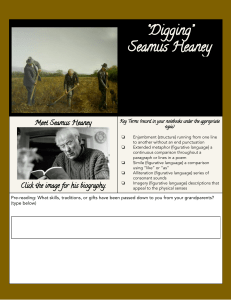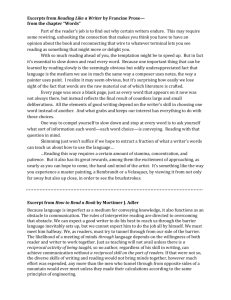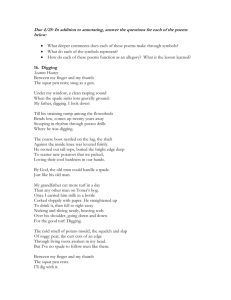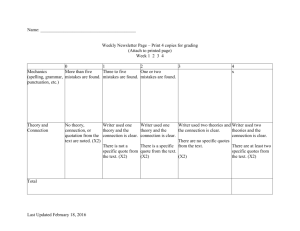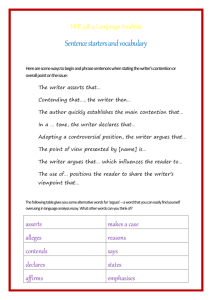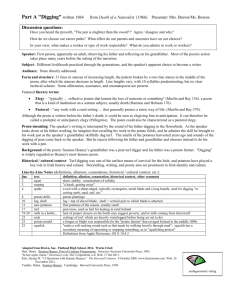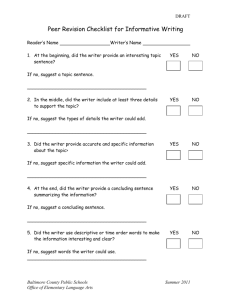finding voice in writing 5th period
advertisement
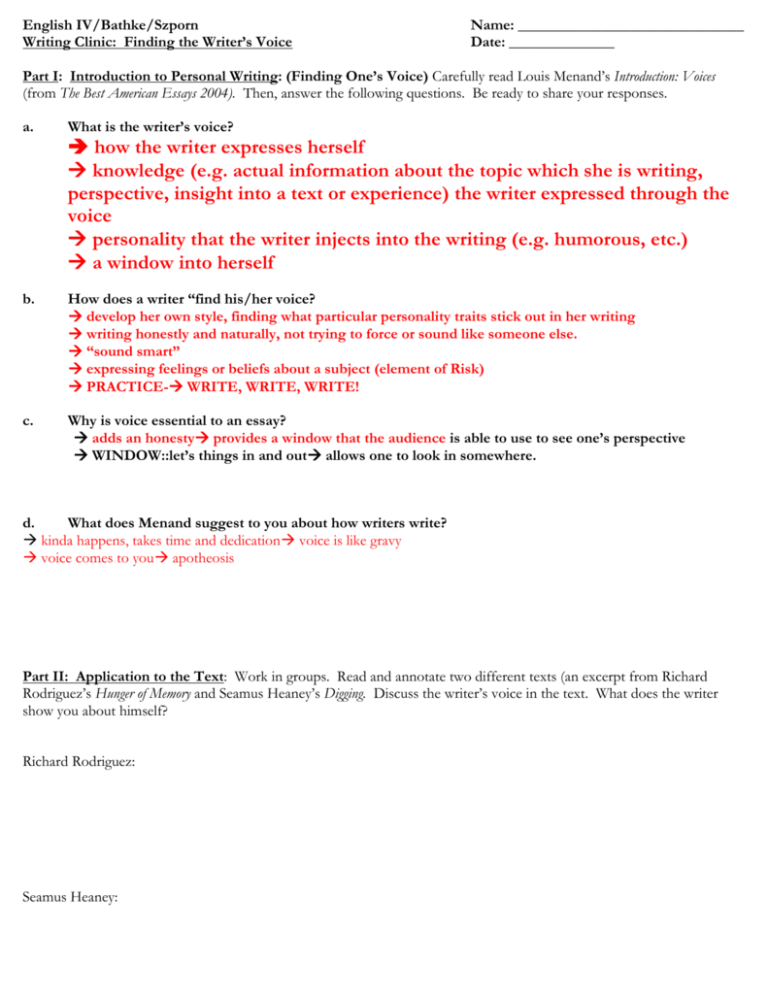
English IV/Bathke/Szporn Writing Clinic: Finding the Writer’s Voice Name: ______________________________ Date: ______________ Part I: Introduction to Personal Writing: (Finding One’s Voice) Carefully read Louis Menand’s Introduction: Voices (from The Best American Essays 2004). Then, answer the following questions. Be ready to share your responses. a. What is the writer’s voice? b. How does a writer “find his/her voice? develop her own style, finding what particular personality traits stick out in her writing writing honestly and naturally, not trying to force or sound like someone else. “sound smart” expressing feelings or beliefs about a subject (element of Risk) PRACTICE- WRITE, WRITE, WRITE! c. Why is voice essential to an essay? adds an honesty provides a window that the audience is able to use to see one’s perspective WINDOW::let’s things in and out allows one to look in somewhere. how the writer expresses herself knowledge (e.g. actual information about the topic which she is writing, perspective, insight into a text or experience) the writer expressed through the voice personality that the writer injects into the writing (e.g. humorous, etc.) a window into herself d. What does Menand suggest to you about how writers write? kinda happens, takes time and dedication voice is like gravy voice comes to you apotheosis Part II: Application to the Text: Work in groups. Read and annotate two different texts (an excerpt from Richard Rodriguez’s Hunger of Memory and Seamus Heaney’s Digging. Discuss the writer’s voice in the text. What does the writer show you about himself? Richard Rodriguez: Seamus Heaney: Digging (Seamus Heaney) Between my finger and my thumb The squat pen rests; snug as a gun. Under my window, a clean rasping sound When the spade sinks into gravelly ground: My father, digging. I look down Till his straining rump among the flowerbeds Bends low, comes up twenty years away Stooping in rhythm through potato drills Where he was digging. The coarse boot nestled on the lug, the shaft Against the inside knee was levered firmly. He rooted out tall tops, buried the bright edge deep To scatter new potatoes that we picked, Loving their cool hardness in our hands. By God, the old man could handle a spade. Just like his old man. My grandfather cut more turf in a day Than any other man on Toner’s bog. Once I carried him milk in a bottle Corked sloppily with paper. He straightened up To drink it, then fell to right away Nicking and slicing neatly, heaving sods Over his shoulder, going down and down For the good turf. Digging. The cold smell of potato mould, the squelch and slap Of soggy peat, the curt cuts of an edge Through living roots awaken in my head. But I’ve no spade to follow men like them. Between my finger and my thumb The squat pen rests. I’ll dig with it.
